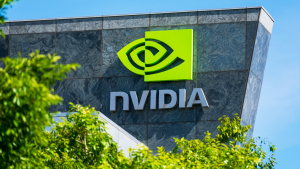Source: Tapati Rinchumrus / Shutterstock.com
AI stocks to buy are not all doomed like Alphabet’s (NASDAQ:GOOG, NASDAQ:GOOGL) recent mishaps.
Alphabet’s AI journey has been a rollercoaster of missteps, one blunder following the other. In March, it shed a whopping $100 billion in market value following a thrashing in which its chatbot generated erroneous information during a promotional video.
Most recently, Google has become the butt of jokes due to hilarious blunders by its AI Overviews. From advising users to “glue pizza” to suggesting “eating rocks,” Google’s AI fumbles are tough to overlook.
In contrast, these three AI stocks to buy have done a far better job of leveraging AI technology to propel their businesses forward. AI already has a tangible impact on their financials, amplifying their growth trajectories. Hence, for investors looking to pounce on AI technology without the drama, here are three resilient AI stocks to buy, offering a healthy upside ahead.
ServiceNow (NOW)

Source: Sundry Photography / Shutterstock.com
ServiceNow (NASDAQ:NOW) stands out as one of the top AI exponents, yet its tremendous potential for long-term growth makes it an underrated play. Its platform streamlines critical operations across IT, customer service and HR workflows by weaving generative AI into its popular Now Platform. Its AI integration has significantly improved operational efficiency, sustained momentum and driven enterprise innovation.
CEO Bill McDermott recently described AI as a “shift in the enterprise” during a CNBC interview. This bold claim points to substantial top and bottom-line gains in the upcoming quarters, underscoring a promising outlook for the firm.
Its sticky cloud platform maintains a stellar 98% renewal rate among its expansive client base, which includes 85% of the Fortune 500. With over 8,100 customers and 2,000 boasting annual contracts of over $1 million, ServiceNow’s powerful engagement numbers and client loyalty are second to none.
Broadcom (AVGO)

Source: Sasima / Shutterstock.com
Broadcom (NASDAQ:AVGO) is a top producer of custom application-specific integrated circuits, making it a key player in the semiconductor space. Lately, AI has played a pivotal role in shaping recent quarters, particularly in Q2.
Q2 revenues were up a superb 43% year-over-year (YOY) in net sales, hitting $12.5 billion. A key factor in its stellar growth narrative is the company’s AI sales, which climbed by 280% YOY to $3.1 billion. Moreover, this spike was amplified further by the inclusion of VMware’s performance, but even without it, Broadcom saw a commendable 12% jump in sales.
Demand for AI-related chips will continue driving Broadcom’s robust top-line. It recently bumped its annual sales forecast for AI-related chips upwards to $11 billion from an initial $10 billion. This positive adjustment is linked to surging demand from major hyperscaler clients, including a lucrative new contract with Alphabet. Hence, these developments are not just a win for Broadcom but signal a positive outlook for investors eyeing sustained growth in the AI space.
Nvidia (NVDA)

Source: Michael Vi / Shutterstock.com
Nvidia’s (NASDAQ:NVDA) rise over the past year has been nothing short of spectacular. Its seamless transition from a leader in gaming GPUs to a titan in the AI realm has been incredible, to say the least.
Over the past year, its evolution has been linked to its groundbreaking H100 chip. These chips have transformed generative AI platforms, setting a new industry benchmark. Moreover, the successor to the H100 chip is already in the works, in its Blackwell chips, boasting 30 times the power of the H100. This technological leap promises substantial revenue streams, cementing Nvidia’s role at the forefront of the AI realm.
Nvidia’s revenue growth has surged 195% from $26.97 billion last year to trailing twelve-month (TTM) sales of $79.77 billion. As the new chips roll out, Nvidia’s influence in driving the next wave of AI applications is undeniable.
On the date of publication, Muslim Farooque did not have (either directly or indirectly) any positions in the securities mentioned in this article. The opinions expressed in this article are those of the writer, subject to the InvestorPlace.com Publishing Guidelines

